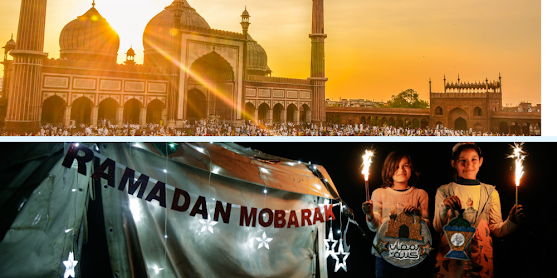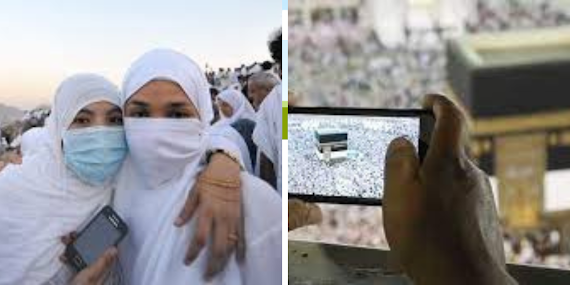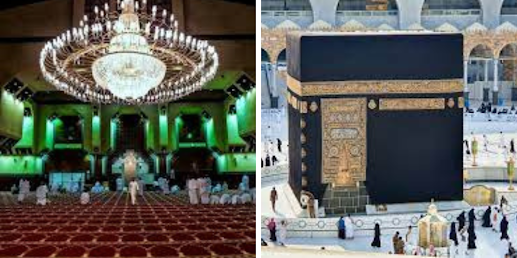Things to do for muslim travelers in south africa
Muslim travellers in South Africa hire in various movements to their religious practices. They seek blessing gifts and halal food choices, which are general in cities with a significant Muslim population.
During Ramadan, they celebrate fasting and examine suhoor and iftar opportunities. They may stay in local mosques, such as the Nizamiye Mosque in Johannesburg or the Grey Street Mosque in Durban.
Facilities for muslims in south africa:
- Prayer Facilities
- Halal Food
- Ramadan Observance
- Mosque Visits
- Cultural Experiences
- Dress Code
Prayer Facilities
Muslim travellers in South Africa have entrance to various prayer talents to fulfil their religious duties.
Here are some key elements of prayer aptitudes for Muslim travellers:
1. Mosques:
South Africa is home to countless mosques where Muslim tourists can present their everyday prayers.
Many resorts and guesthouses in South Africa comprehend the needs of Muslim travellers and present prayer rooms within their deductions. These facilities typically provide prayer mats, Qibla guide arrows, and ablution aptitudes to ensure comfort for guests.
2. Islamic Centers:
There are Islamic centres and organisations throughout South Africa that cater to the needs of Muslim visitors. These bases often have prayer halls, libraries, and educational programs. Muslim visitors need to educate themselves about the availability and areas of prayer facilities in the specific areas they plan to visit. They can inquire about local mosques, and Islamic institutions, in locating the right prayer skills during their stay in South Africa.
Mosques in south africa for muslims
- Zeenatul Islam Masjid
- Jamiatul Masjid
- Masjid al-Imma
Halal Food:
Halal food options are known for Muslim tourists in South Africa, confirming they can adhere to their dietary conditions.
Points about halal food in South Africa:
1. Restaurants and Eateries:
South Africa has a various range of cafes and eateries that offer halal food. In areas with a considerable number of Muslim people, such as Cape Town, Durban, and Johannesburg, there are multiple halal-certified establishments. It provides that the meat is sourced from halal-certified suppliers and that good halal food conducting practices are followed.
2. Local Markets:
Muslim travellers can investigate local markets in South Africa. Visitors can buy ingredients to cook their own dinners to eat halal snacks and highway food.
Most famous food in south africa for Muslim travellers:
- Bobotie
- Braai
- Braaibroodjie
- Biltong
Muslim travellers need to confirm the halal status of the food facilities they visit and ensure their dietary needs are satisfied. They can examine the halal credential or seek guidance from local Muslims or reliable sources to have a delightful culinary experience in South Africa.
Ramadan Observance
Observing Ramadan, the holy month of fasting and spiritual reflection is an important practice for Muslim travelers in South Africa. Here are some key points about Ramadan observance:
1. Fasting:
During Ramadan, Muslim travellers in South Africa abstain from eating, drinking, and other physical needs from dawn (suhoor) until sunset (iftar). This act of fasting is considered an act of worship and self-discipline.
2. Suhoor and Iftar:
Muslim travellers ensure they have a pre-dawn meal called suhoor to provide sustenance for the day ahead. Suhoor typically consists of foods that provide energy and hydration, such as grains, proteins, fruits, and plenty of water.
3. Prayer and Spiritual Reflection:
Ramadan is a time for increased devotion and reflection. Muslim travellers engage in additional prayers, such as Taraweeh, which are special congregational prayers performed after the evening prayer (Isha).
4. Community and Family:
Ramadan is a time of togetherness and strengthening relationships. Muslim travellers often join with local Muslim communities to partake in communal iftar meals or attend special events organized during Ramadan.
|5.Halal and Ramadan-Specific Food:
Muslim travellers seek out halal food options during Ramadan to ensure compliance with their dietary requirements. Many restaurants and food establishments offer special Ramadan menus or iftar buffets during the month. Additionally, they may find special Ramadan treats and traditional sweets at local markets and bakeries.
Muslim travellers need to familiarize themselves with the local customs and practices during Ramadan in the specific areas they plan to visit in South Africa.
Mosque Visits
Visiting mosques is an important aspect for Muslim travellers in South Africa.
Here are some key points about mosque visits:
- Islamic Heritage:
South Africa has a rich Islamic heritage, and visiting mosques allows Muslim travellers to connect with this cultural and religious legacy.
2. Prayer:
Mosques provide reliable spaces for congregational prayers. Muslim travelers can join local worshippers in performing the five daily prayers, including the Friday congregational prayer (Jumu'ah) where sermons are delivered by the imam.
Mosque visits can be a significant and enriching experience for Muslim travellers, allowing them to connect with the spiritual and cultural aspects of Islam in South Africa.
Cultural Experiences
Muslim travellers in South Africa can engage in various cultural experiences that offer insights into the country's diverse heritage. Here are some key points about cultural experiences for Muslim travellers:
- Cultural Festivals:
South Africa celebrates a range of cultural festivals throughout the year, providing opportunities for Muslim travellers like Eid al-Fitr, and Eid ul azha Heritage Day to showcase the country's multicultural fabric and traditional food.
Islamic events for Muslim travelers in south africa
- Shab e Miraj
- Shab e Barat
- Ramadan
- Eid ul Fitr
- Hajj
- Ashura
- Eid Milad un Nabi
2. Traditional Cuisine:
Exploring the local cuisine is a significant cultural experience. Muslim travellers can savour traditional South African dishes such as bobotie (spiced minced meat), bunny chow (a bread-filled curry), and boerewors (traditional sausage).
3. Cultural Villages:
Visiting cultural villages provides a window into South Africa's diverse ethnic groups and their traditions to learn about the customs, rituals, and lifestyles of different indigenous communities, including Zulu, Xhosa, and Sotho.
Muslim travellers in South Africa can engage themselves in these cultural backgrounds while esteeming their religious ideas. It's advisable to plan, research local customs and sharpness, and seek suggestions from local expedition operators to make the most of their cultural exploration.
Dress Code
When visiting South Africa as a Muslim traveller, it's important to be mindful of the local gown code and artistic norms.
Here are some key points about the dress code:
1. Modesty: Dressing modestly is highly stimulated in South Africa, regardless of religious affiliation. Both men and women should aspire to cover their shoulders.
2. Head Covering for Women:
Muslim women who choose to cover their hair with a hijab or headscarf should feel comfortable doing so in South Africa.
3. Business and Formal Attire:
In professional settings, such as company gatherings it's suitable to dress in firm clothing following public transnational measures.
4. Comfortable Clothing:
South Africa has a mixed climate, Weightless, breathable materials are suggested for hot and damp regions, while more generous garments may be required for cooler areas or during winter months.
It's always a good idea to be mindful of and respect local traditions and sharpness when it comes to flavouring.
Summary of muslims travellers in south africa:
Muslim travellers in South Africa form a powerful and various community that donates to the country's passionate multicultural material. This congregation consists of someone from various racial experiences, including those of Indian, Malay, and African destruction.
Muslim tourists visiting South Africa can examine a range of occasions that cater to their spiritual and artistic needs. The country puffs several mosques, Islamic centres, and halal-certified eateries, especially in areas with higher Muslim attention such as Cape Town, Durban, and Johannesburg. These sites provide prayer facilities, halal food options, and welcoming requirements for Muslim travellers.




Comments
Post a Comment